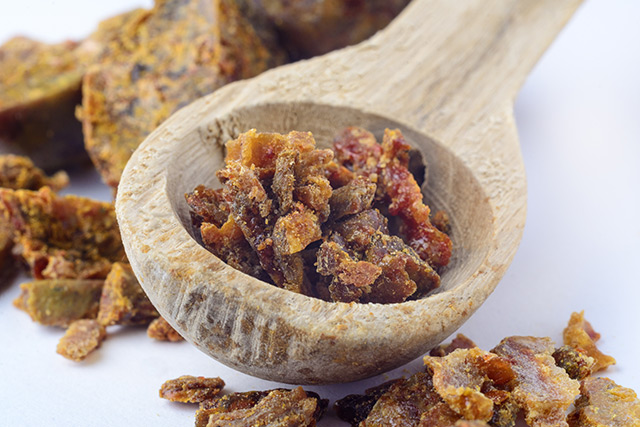Pregnant diabetic women are encouraged to take propolis
02/26/2019 / By Ellaine Castillo

There are many things that could go wrong during a pregnancy. This is especially true for mothers who have been diagnosed with diseases such as diabetes. Fortunately, researchers from Usmanu Danfodiyo University in Nigeria and Universiti Sains Malaysia found a potential way of improving pregnancy outcomes in diabetic women. Their study, which was published in BMC Complementary and Alternative Medicine, showed that the superfood propolis not only improves pregnancy outcomes but also placental oxidative stress.
Nowadays, diabetes mellitus has become increasingly prevalent. By 2040, it is expected to affect more than 642 million people in the world. This condition is characterized by elevated blood sugar levels, which often lead to a wide range of complications when left untreated. These include kidney damage, cardiovascular disease, and Alzheimer’s disease. Pregnant women with diabetes have to be more careful about maintaining their blood sugar levels since it could also affect the development of their baby. Previously, it has been shown that diabetic mothers are more likely to give birth to infants with congenital malformations compared to those who have never had the disease. This risk is affected by maternal factors including age, obesity, duration of the disease, diet, and medications. Diabetic mothers also exhibit higher placental oxidative stress, which can be resolved with the help of natural antioxidants.
Propolis is a compound produced by bees from tree sap, their own discharges, and beeswax. It has long been used as a traditional remedy for wounds and cancer. Studies have also shown that it can be used to improve body weight, blood sugar levels, lipid profile, malondialdehyde levels, and kidney function in rats. These benefits can be attributed to the more than 300 bioactive compounds found in propolis, which include polyphenols like flavonoids. However, there are no prior reports on the benefits of propolis against diabetes-induced impaired pregnancy outcomes and placental oxidative stress.
In this study, the researchers evaluated the effects of propolis produced by the stingless bee (Heterotrigona itama) on pregnancy outcomes and placental oxidative stress. To do this, they used pregnant Sprague-Dawley rats and divided them into the following groups:
- Group 1 — Non-diabetic rats
- Group 2 — Diabetic rats
- Group 3 — Diabetic rats that received propolis (300 mg/kg)
- Group 4 — Diabetic rats that received insulin (300 mg/kg)
- Group 5 — Diabetic rats that received both insulin and propolis
The team determined placental oxidative stress based on malondialdehyde and protein carbonyl levels and total antioxidant capacity. Meanwhile, pregnancy outcomes included resorption and implantation loss, number of live and dead fetuses, fetal and placental weights, and fetal fasting blood glucose. Looking at these parameters, the researchers found that propolis improves pregnancy outcomes and placental oxidative stress. Additionally, they found that its beneficial effects were greater when given along with insulin.
Overall, the results of this study suggest that propolis is an important superfood for diabetic women. This is because of its ability to improve pregnancy outcomes and placental oxidative stress.
More reasons to include propolis in your diet
By eating propolis, you can also enjoy the following health benefits:
- Faster wound healing — Propolis is known for its potent antimicrobial properties. These are beneficial for preventing wounds from becoming infected. Aside from these, propolis has been shown to boost the growth of skin cells. Chinese propolis, particularly, protects against cell damage, maintains collagen activity, and stimulates antioxidant production.
- Normal blood pressure — A study revealed that taking propolis two times a day for three months can significantly improve blood pressure. This action potentially involves the ability of the superfood to inhibit the activity of tyrosine hydroxylase, an enzyme that causes high blood pressure.
- Lower risk of cancer — Eating propolis reduces cancer risk by preventing the formation of new blood vessels that provide cancer cells with oxygen. This starves them of the nutrition that they need to grow, effectively killing them in the process. (Related: Bee propolis found to be effective at slowing the spread of colon cancer, study finds.)
Sources include:
BMCComplementAlternMed.BioMedCentral.com
Submit a correction >>
Tagged Under:
bee propolis, Birth defects, children's health, diabetes, functional food, infant's health, natural cures, natural remedies, oxidative stress, pregnancy, pregnant women, Propolis, women's health
This article may contain statements that reflect the opinion of the author
RECENT NEWS & ARTICLES
COPYRIGHT © 2017 ALTERNATIVE MEDICINE NEWS





















